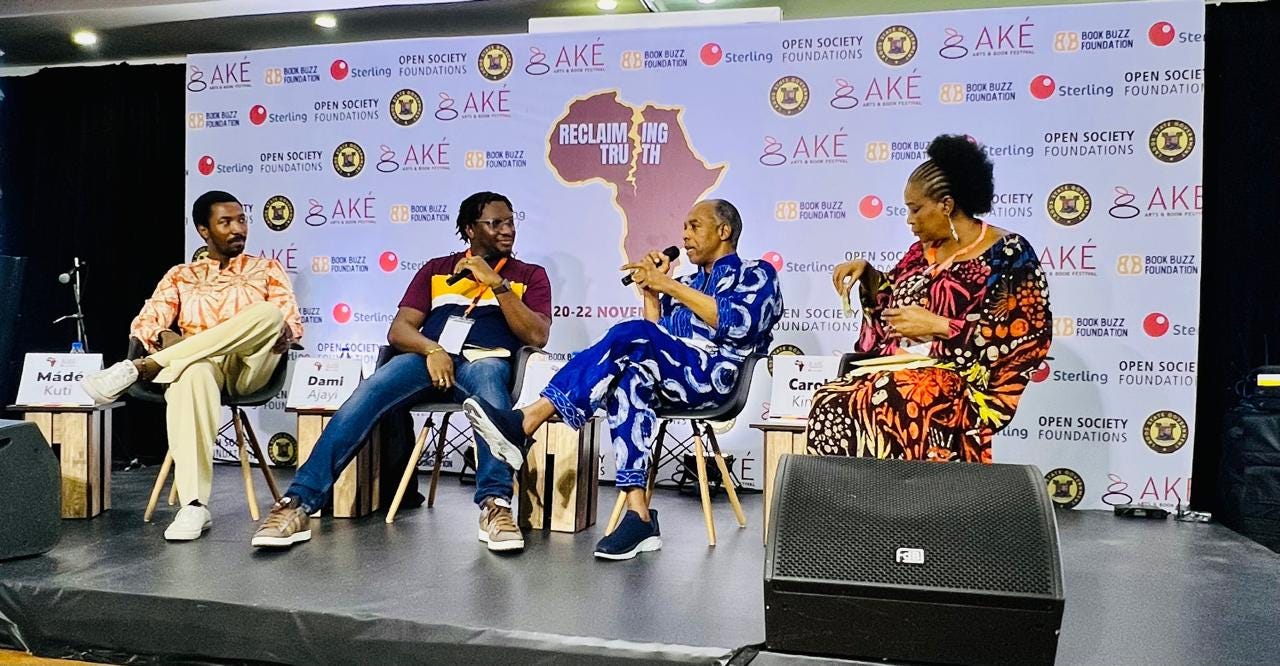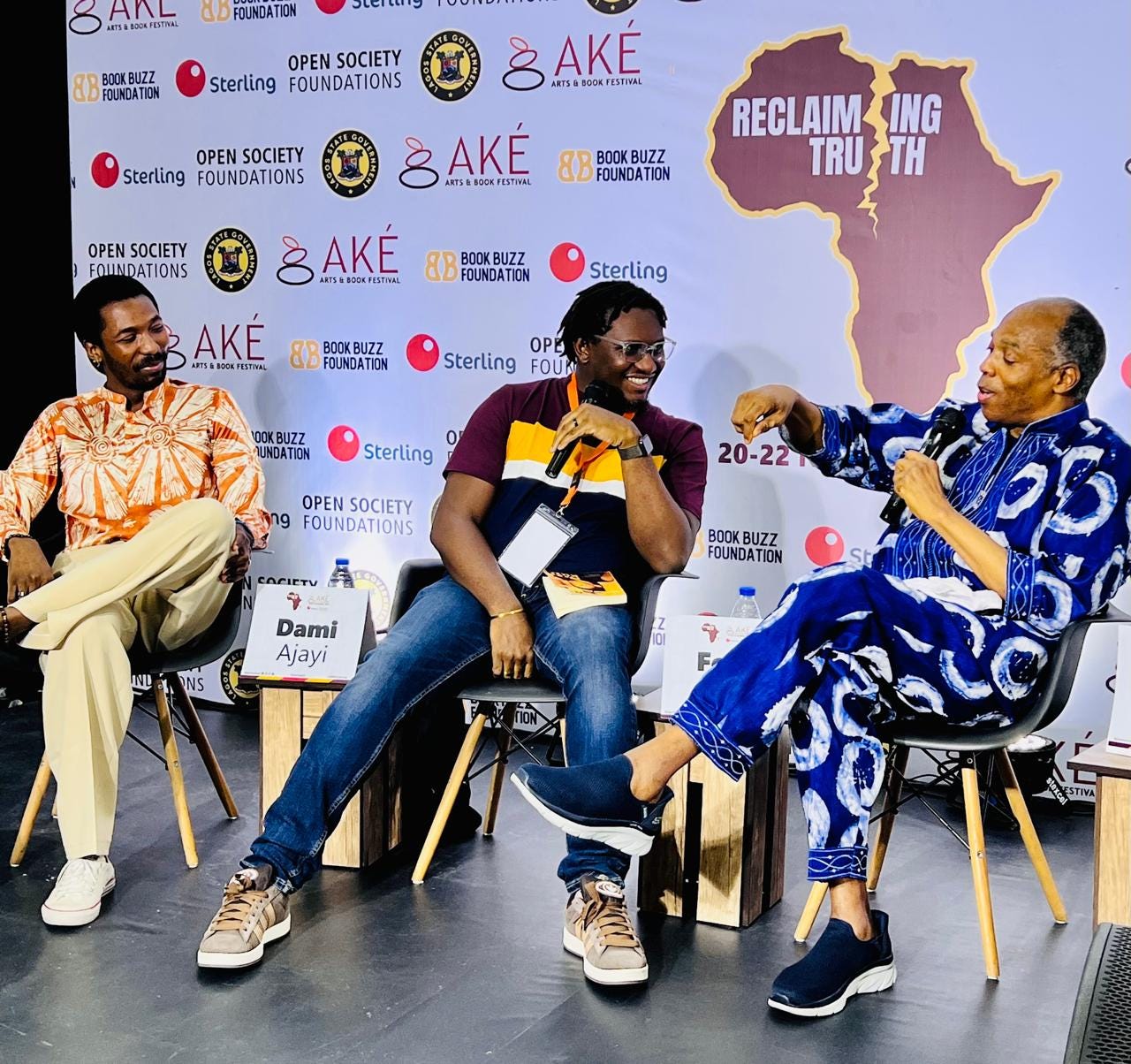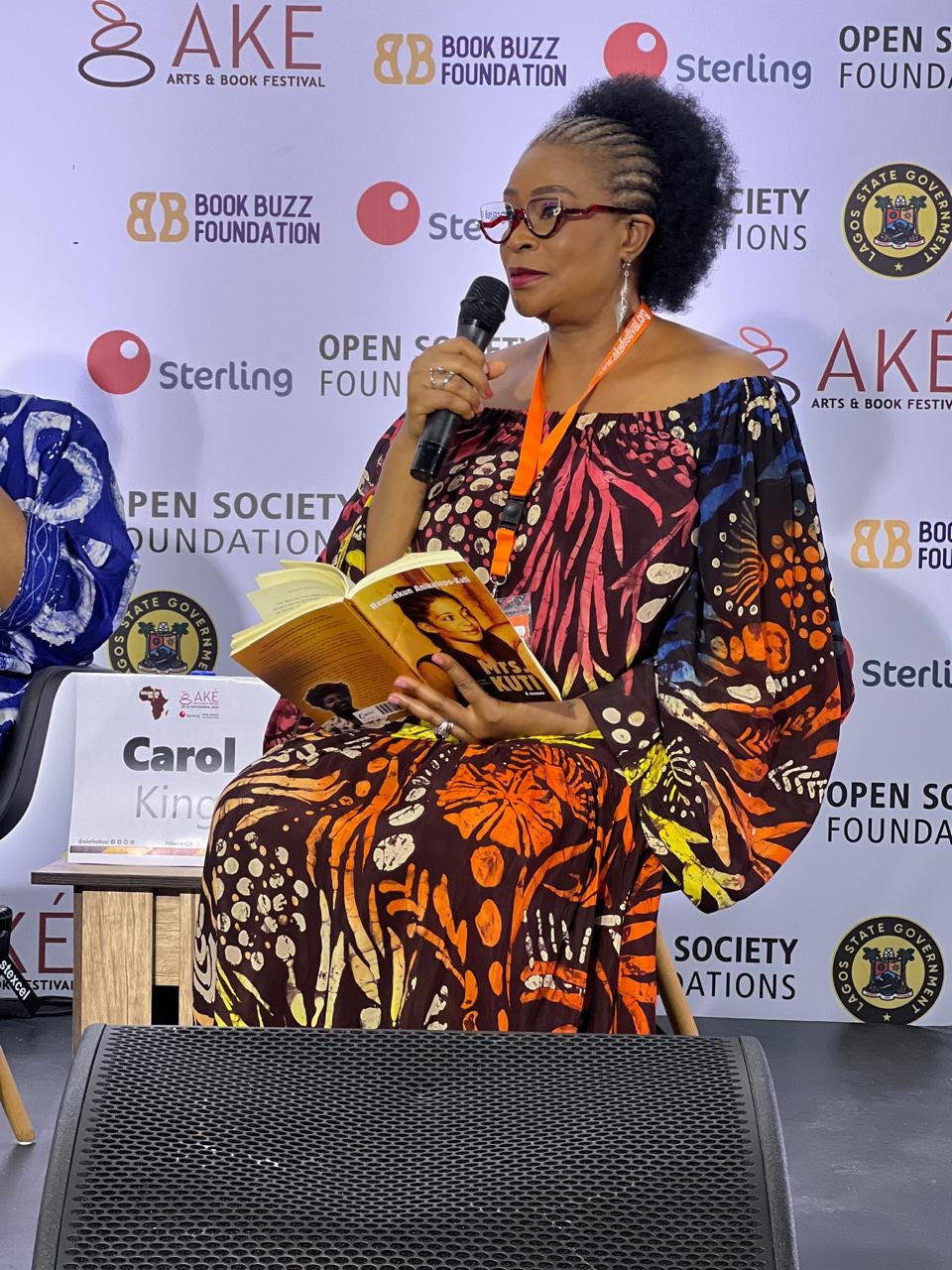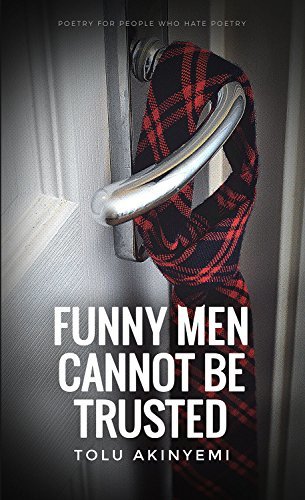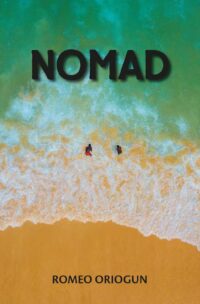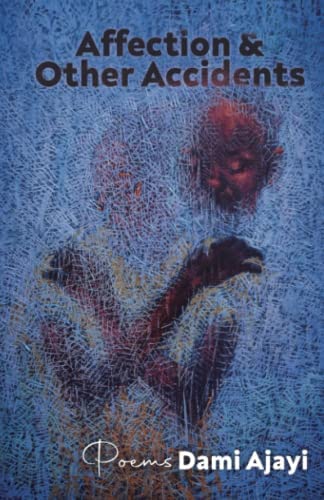Dami Ajayi is a Nigerian-born music writer, poet and psychiatrist based in the United Kingdom. He studied medicine and surgery at Obafemi Awolowo University and trained in Psychiatry at Federal Neuro-Psychiatry Hospital, Yaba.
He is the author of three poetry collections: Clinical Blues (WriteHouse, 2014), A Woman’s Body is a Country (Ouida Lagos, 2017) and Affection & Other Accidents (Radi8, 2022). His poetry has been shortlisted for several prestigious prizes, including the Association of Nigerian Authors Prize, the Wole Soyinka Prize for African Literature, and the Glenna Luschei Prize for African Poetry.
During his undergraduate studies at Ife, he developed a love for writing about music. He wrote for several campus magazines and maintained a blog about contemporary music from the mid-2000s. Ajayi has worked as a music journalist for OlisaTV magazine (2014-2016) and culture blog This is Lagos (2017-2019). In 2019, he co-founded The Lagos Review, where he commissioned and edited profiles, interviews, reviews, essays, and commentary on contemporary and older music genres.
His music writing has appeared in various publications, including The Africa Report, The Republic, Culture Custodian, Chimurenga Chronic, Afropolitan Vibes Magazine, Lost in Lagos Magazine, Global Voices, Music in Africa, and The Elephant. He has also consulted for music writing in feature articles published in the Financial Times, African Arguments, Al Jazeera, The World, and Weekendavisen.
He writes and curates “London Listening Sessions,” a newsletter on Substack.
- Libretto: Hello, Dami. We are beyond pleased to have you join us.
Dami: The pleasure is mine. Thank you for having me.
- Libretto: Can you share your journey into the world of poetry and literature? What inspired you to become a poet and music critic?
Dami: The journey to becoming a poet was serendipitous. I started scribbling from age 11. Tried to float a magazine with my Junior Secondary School mates, but I was unable to, but I kept writing. In Senior Secondary school, my mum encouraged me to study Literature, not Geography, so I did Literature at O’Levels, which is all my formal instruction in Literature. The rest came from reading. I love being buried in a book, feeling my way through the world with language. I started writing poetry seriously in medical school to investigate my experience as a medical student. The novelty of dissecting corpses, the smell of decay, and the politics of different health professionals in the hospital fascinated me. I also started amateur music commentary when writing the poems that would become Clinical Blues. Afrobeats was still a young genre experiencing exponential growth at the time. I have always loved music and felt the urge to talk about it with others, so documenting my thoughts was my way of seeking clarity. Music is very tricky to write about.
- Libretto: As someone who bridges the worlds of poetry, psychiatry, and music criticism, do you find that each discipline influences the others? If so, how?
Dami: I have been formally trained in psychiatry, so I accept that status. Ditto for poetry, as I have written three volumes of poems. As regards music criticism, I have done decent research and focused writing in that field in the last decade. Humans are moved and motivated by the force and illumination of ideas. Psychiatry as a science borrows from every field to enrich itself. Poetry and the arts do the same. Music criticism does the same too. A well-read individual weaponises his knowledge.
Some of the finest insights into human behaviour are the bread and butter of theories taught in psychiatry. I have been accused of bringing medical terminologies into my poetry. I did this brazenly in my first book, Clinical Blues. This was toned down in my second book, where I embraced a lyricism close to songwriters. The third book was an attempt at catharsis, using every discipline at my disposal. My work as a keen music lover often spills into my poetry and music journalism.
- Libretto: As a music journalist, do you ever find yourself analysing your poetry in the way you would critique a song or album?
Dami: Usually, when working on drafts of a poem, I approach the text with some kind of rigour that meets the threshold of literary criticism. This is mainly to resolve that artistic doubt that challenges the vanity of writers, the belief that what one has written may not be worth anyone’s time. Also, my usual creative instinct is to challenge the status quo, to stand apart in mischief and single-mindedness.
- Libretto: How does your training as a psychiatrist shape the themes you explore in your poetry? Are there any psychological tropes that repeatedly surface in your work?
Dami: My poetry has more likely influenced my psychiatric practice. My preoccupation with confessional poetry demands my recollections about memory, nostalgia, play, and trauma appear in my work. I read Freud in medical school before I chose psychiatry. Reading Freud may have influenced my interest in psychiatry, but the more urgent reason I wanted to be a psychiatrist was that I found out halfway through medical school that I was squeamish.
- Libretto: When analysing a song as a critic, do you focus on lyricism, melody, or subject matter? How do you separate the art from the merits of its composition?
Dami: In life and literature, I assess human behaviour and check whether the boundaries of what is accepted as normal have been traversed. I don’t reserve that vocation to just clinical practice. On one level, everyone does this. We are a meaning-seeking species. As a psychiatrist, our vocation makes this all the more structured and its immediacy more heightened.
- Libretto: Do you think the clinical understanding of human behaviour ever interferes with your ability to be purely imaginative as a poet?
Dami: Again, given that I approach poetry from the standpoint of the individual, which is often myself (these days, I imagine a kinship with my ancestors, particularly my great grandfather Ifamilehin), but given that my arsenal comprises of my observation, my memory, and my body and its scars, imagination is not my most immediate concern. Sometimes, poetry is an attempt to understand my motivations.
- Libretto: What was the process of writing your first book like for you? Has there been any radical changes between how you wrote your first book and how you write now?
Dami: Clinical Blues was collected from 2007 to 2011. These were at the height of my training in medical school. I started writing the long title poem during long lectures and outpatient clinics when my mind wandered away from instruction. It was a meditation about what my sense of sight, sound and touch brought to me. I was curious about universal themes like health, disease, and dying. I was struck by my human response to these themes. We take health for granted, we panic at the prospect of disease, and we are terrified by the certainty of death. The uncertainty of death is another kettle of fish. I wanted to write about how these experiences impacted the sick, caregivers, and the fly on the wall christened ‘the jazz pianist’ in those poems. I think I had too much fun writing those poems, and ten years later, I am struck by how original, mischievous, and charming they are. I suspect that my poetry has become more cynical than mischievous with age. I don’t know why, but I still approach poetry with a singular purpose, one poem at a time. I am always looking for a shift in my poetic language.
Once this was achieved, I was then keen to write another book. A Woman’s Body is a Country began as Daybreak, my poetry chapbook. It is about travel, city life, music, dancehall, nightlife, bodies, elusive love, and patriotism. It was a distillate of my experiences after I left medical school in Ife and moved to Lagos as a young man. There is a strong sense of the city therein. With Affection, that book jumped me. I did not know when I started to write it, but one day, I looked at the notes on my phone, in my notebook and on my computer, and it was clear that I had a book with a unifying theme. It is also my most experimental and vulnerable book.
- Libretto: Could you share some insights into your experience of publishing your work? What challenges have you faced, and what strategies have you found effective in reaching your audience?
Dami: Publishing is, most of the time, a matter of stars aligning. I have been mostly lucky. I have been traditionally published twice, with my first two books, and Affection was vanity published. Every mode of publishing has its merits and demerits. With Affection, I wanted absolute control of the work, marketing, and audience. It is a rigorous and exhausting process because it does not allow you to sleep unless you intend to sleep on yourself. In Nigeria, publishers rely on their authors to do the heavy lifting regarding promotion. They expect you to cultivate and nurture your audience. It is not peculiar to us in Nigeria; it has become the publishing industry standard globally. Your publishers want to know your social media impact and so forth. Books are products. There have been periods when I have felt the need to promote my work, but I have always been reluctant to be as earnest as the Molue trader. I utilise the platforms available to me. However, I have been fortunate with word-of-mouth promotion and unsolicited reviews. Occasionally, something extraordinary happens, like my book being placed in a Nollywood film or an Italian translator buying my book and wanting to translate the poems, etc. I have said a lot about luck, but I suspect quality and accessibility also play a role.
- Libretto: In your opinion, what makes a piece of poetry or criticism truly impactful and enduring?
Dami: The simple answer for me is utility. Is it useful to someone, anyone at any time? If that utility endures, then it stays relevant, stays in print, and stays in use.
- Libretto: Libretto: As a psychiatrist, you’re trained to observe and analyse without emotional involvement. But what role does emotional vulnerability play in your writing process? Does it differ between your poetic and journalistic work?
Dami: I practise art forms that require emotional involvement. Poetry demands of the writer an acute sense of emotions. You will be correct if you call poetry a deliberate attempt at transcribing a vortex of emotions. Music journalism also requires some depth of interest. In writing eloquently about a song, a genre, or a concert, you must be able to recreate a level of immersion in prose. A psychiatrist needs some level of immersion, too, which we call empathy, to navigate the experiences that are being described. The profession demands it, and it is the least one can pay as respect for the patient’s vulnerability.
- Libretto: How do you approach themes of mental illness in your poetry? Do you feel an ethical responsibility to portray these experiences accurately?
Dami: I have written sparingly about mental illness. There are two short poems, “Romansider Blues” and “Finding Addiction”, in Clinical Blues and A Woman’s Body is a Country, respectively. These poems are very universal and removed from personal enquiry. One is directly motivated by my interaction with a patient; the other was entirely imagined, but the notion of complete imagination is fiction. Better to say that the poem was composed from several true stories. I went to great lengths in both poems to comply with extant ethical considerations. I wonder if poetry can be charged with the act of accurate reportage. Even journalism, somewhat obsessed with facts, struggles with this charge how much more poetry?
- Libretto: From both your psychiatric and poetic perspectives, what do you make of the idea of the “tortured artist”? Do you think there’s a connection between mental health struggles and creativity?
Dami: The tortured artist is a trope that has uses, particularly in pop culture. As a writer, I approach tumultuous emotions with poetry and happier emotions are often resolved in music writing. There is no doubt an association or correlation (not a causal relationship) between mental illness and creativity. It is a research interest, and some fine researchers have gone as far as assigning posthumous psychiatric diagnoses to some deceased creative geniuses.
- Libretto: What, in your opinion, are the most significant challenges facing writers and music journalists today? Especially those whose work caters mostly to an African audience.
Dami: Sustainability of their practice. How many folks can dedicate themselves entirely to their calling as writers or music journalists? As a young person with fewer responsibilities, it is easy for one to say I am a journalist or writer. But when demands and greater duties like looking after a young family or aged parents hit you, one must look outside that calling. If there is decent remuneration for writing, we may all be better off. But people don’t consider the act of composition to be one that should be regarded. This is why writers get paid peanuts. Folks who can’t write parade themselves as writers, and the overall quality of our literary output falls annually. Many of my contemporaries who began as writers have had to find other ways of making money – some have become politicians and aides to politicians. Others are in academia. Some are in the NGO space. I have stayed in clinical practice as a medical doctor. Those who have stayed in writing are doing writer-for-hire to make ends meet. The problem is the lack of opportunities and structures that can sustain one’s writing practice as a sole form of livelihood. Our society does not appreciate the value of creative expression.
- Libretto: Do you believe that the process of writing a work of poetry can have therapeutic effects? Or is this more likely to be the case when reading a poem?
Dami: A poem, the writing of it or experiencing it as a reader, can be a gift. It can also be a trigger. It is really about how it is deployed. We all read and write poetry for different reasons. I write mostly to make sense of my feelings and the world. Some write poetry to motivate and encourage. Others do it to showcase their exuberance or the influence of others. I have written poems for their cathartic value. Readers have come to me with thoughts about how my poems have spoken to them. Would I recommend poetry instead of therapy? Absolutely not!
- Libretto: Which poets or music critics have most influenced your work? How have they shaped your voice?
Dami: If I had to mention all my influences in poetry, we may not leave here. I am more motivated by books than individual poets and more by dead poets than those alive. I love the precision and sense of history in Femi Oyebode’s poetry. I love the formal ambitions of Terrance Hayes’ poetry. I love IfeanyiMenkiti’s poetry for its sardonic wit, wisdom and deadpan humour. My favourite music critic to read is the late Greg Tate. I was put on to him by Nigerian writer and professor Akin Adesokan. Again, with music writing, I am enamoured with specific essays and not writers in general. I am currently reading the Best Music Writing Essays series published by Da Capo Press.
- Libretto: So, what are you working on next? What should we look forward to? Is there anything you are currently working on that may intrigue the interest of your readers?
Dami: I am working on a book of poems about COVID, migration, and ageing. Some days, it feels like working on three different books. I am also putting the final touches on a book of short stories and a book of interconnected essays on music. There is a novel begging to be written.
- Libretto: Finally, what advice would you give to young writers, journalists, or medical professionals who want to explore the intersection of these fields?
Dami: Read, read, read, and then write for writers. Journalists, hold yourself to the highest esteem and ethics of your profession. Medical professionals, never forget the reason—it is always about our patients.

